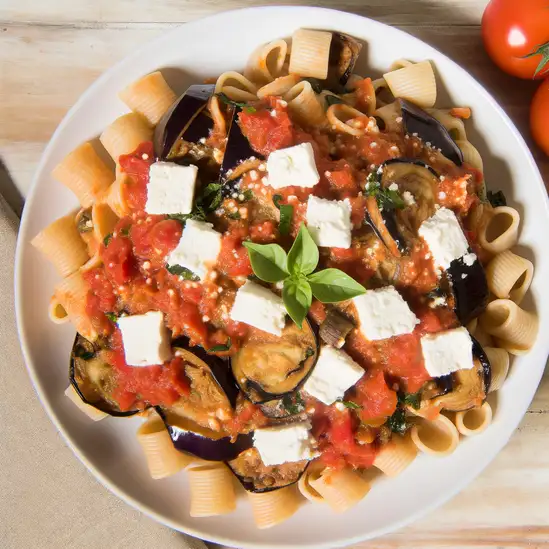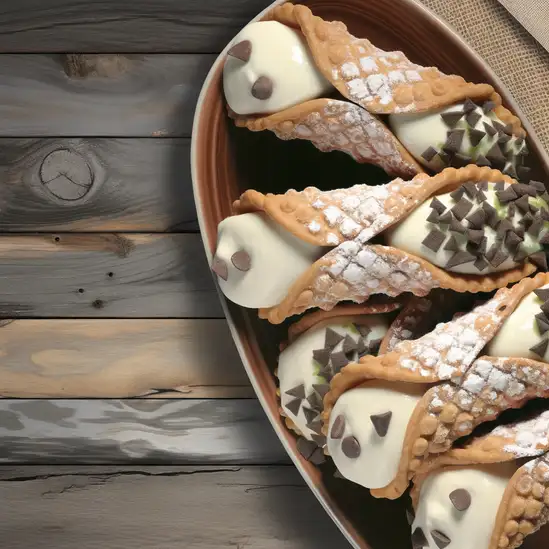



If you ever find yourself wandering through Sicily,Ragusa is one of those places that quietly steals your heart without shouting for attention. The moment you step into its sun-drenched streets,you’re wrapped in a warm embrace of baroque charm and slow,easy rhythms. The city feels like a living painting—honey-colored stone buildings bathed in golden light,narrow alleys that twist and turn inviting you to explore,and the soft murmur of locals chatting over espresso in tiny piazzas. There’s a peacefulness here,but also a vibrant pulse beneath the surface,like the city is breathing stories from centuries past. Walking through Ragusa Ibla,the older part of town,you’ll catch the scent of fresh basil and citrus mingling with the salty breeze from the nearby sea. The sound of church bells ringing blends with the clinking of glasses and laughter spilling out from trattorias where you can savor some of the best Sicilian cuisine—think creamy ricotta,sun-ripened tomatoes,and pasta that tastes like it was made by your nonna herself. Every meal feels like a celebration of the land and sea that surround this place. What makes Ragusa truly special is its blend of history and everyday life. It’s not just a pretty backdrop; it’s a place where people live fully,where traditions are alive,and where you can feel the genuine warmth of Sicilian hospitality. Visiting Ragusa isn’t just about seeing a city—it’s about stepping into a story that you’ll want to keep telling long after you’ve left.
The information on this page is currently being reviewed by Tripkliq and should be used as a guide only
Eng word: Hello
Eng pronunciation: chow
Local language: Ciao
Eng word: Goodbye
Eng pronunciation: ah-ree-veh-DEHR-chee
Local language: Arrivederci
Eng word: Thank you
Eng pronunciation: GRAH-tsee-eh
Local language: Grazie
Eng word: How much
Eng pronunciation: KWAN-toh KOH-stah
Local language: Quanto costa
Eng word: Toilet
Eng pronunciation: BAHN-yo
Local language: Bagno
Eng word: Help me
Eng pronunciation: ah-YOO-tah-mee
Local language: Aiutami
Eng word: Yes
Eng pronunciation: see
Local language: Sì
Eng word: No
Eng pronunciation: noh
Local language: No
Eng word: Excuse me
Eng pronunciation: SKOO-zee
Local language: Scusi
Ragusa, originally founded in the 8th century BC by the Greeks, has a rich history that showcases a blend of cultures over the millennia.
Ragusa Ibla, the old town of Ragusa, is renowned for its Baroque architecture and has been designated as a UNESCO World Heritage Site, along with several other towns in the Val di Noto.
Following the devastating earthquake of 1693, Ragusa was rebuilt in the Baroque style that was popular at that time, creating a plethora of stunning buildings and monuments.
The Cathedral of San Giovanni Battista, rebuilt in the 18th century after the earthquake, stands as a testament to the city's resilience and architectural elegance.
The Hyblean Gardens offer a serene escape with beautiful vistas of Ragusa and its surroundings, showcasing the city's natural beauty alongside its historical charm.
The Ponte dei Cappuccini, or Bridge of the Valleys, is a remarkable example of 19th-century engineering, connecting two parts of the city across a deep valley.
Ragusa Ibla is situated on the site of the ancient city of Hybla Heraea, revealing layers of history from ancient Greece through to the medieval period and the Baroque era.
Ragusa is home to a variety of cultural festivals and events throughout the year, celebrating its rich history, arts, and gastronomy, including the famous Ragusa Foto Festival.
Ragusa is well-known for its culinary traditions, which include dishes like cavati with pork ragù and the chocolate of Modica, showcasing the blend of Italian and Mediterranean influences.
In Ragusa, the most common Power Adaptor is Type C, Type F, Type L.







A classic Sicilian pasta dish made with eggplant, tomato sauce, and ricotta salata, reflecting the region's agricultural bounty.

A famous Sicilian dessert consisting of crispy pastry shells filled with sweet ricotta cheese and often garnished with chocolate or candied fruit.

A type of homemade pasta, typically served with a rich tomato sauce, often accompanied by local vegetables or meat.

Grilled mackerel seasoned with local herbs and olive oil, showcasing the fresh seafood of the region.

Deep-fried rice balls filled with ragù, peas, and mozzarella, often served as a snack or appetizer.

A traditional stuffed flatbread, usually filled with ingredients like tomatoes, cheese, and herbs, then baked until crispy.
If you wander into Catania,you’ll immediately feel the city’s pulse—vibrant,a little wild,and utterly alive. Nestled at the foot of Mount Etna,this Sicilian city wears its history on its sleeve,with baroque buildings dusted in volcanic stone that seem to hum stories of centuries past. The streets buzz with the chatter of locals,the clatter of espresso cups,and the occasional call of street vendors selling fresh catch or fragrant citrus. There’s a raw energy here,a mix of old-world charm and everyday grit that makes you want to slow down and soak it all in.
Walking through the fish market,your senses come alive:the salty tang of the sea mingles with the sharp scent of lemon and the earthy aroma of fresh herbs. You’ll hear the lively bargaining,the laughter,and the rhythmic chopping of knives. Grab a granita—icy,sweet,and refreshing—and sit by the Piazza del Duomo,watching the world go by beneath the watchful gaze of the elephant fountain,a quirky symbol of the city’s resilience.
Catania’s character is a blend of fiery passion and warm hospitality. The people here are proud,fiercely connected to their roots,and eager to share their culture through food,music,and stories. Whether you’re savoring a plate of pasta alla Norma or wandering through narrow alleys lined with vibrant street art,you’ll find a city that invites you to experience Sicily in its most authentic,unpolished form.
Palermo feels like stepping into a vibrant mosaic where every corner hums with life and history. The city’s energy is a mix of old-world charm and raw,bustling street scenes—imagine narrow alleys lined with colorful market stalls,the air thick with the scent of fresh citrus,roasting coffee,and salty sea breeze. As you wander,you’ll hear the lively chatter of locals bargaining over fresh fish and the distant melody of street musicians playing traditional Sicilian tunes. It’s a place where the past and present dance together effortlessly.
What really grabs you about Palermo is its character—gritty yet warm,chaotic yet inviting. The architecture tells stories of centuries,from the intricate Arab-Norman palaces to the baroque churches that seem to glow in the golden afternoon light. But it’s not just about sights; it’s the feeling of sitting at a tiny trattoria,savoring arancini that crackle with every bite or a plate of pasta alla Norma bursting with fresh tomatoes and ricotta salata,while the world buzzes around you.
Palermo’s soul is in its people and their love for life,food,and tradition. Whether you’re exploring the vibrant markets like Ballarò or soaking in the sunset over the Mediterranean from the ancient fortress walls,you’ll find a city that invites you to slow down,breathe deeply,and savor every moment. It’s messy,passionate,and utterly unforgettable.
A historic city with ancient Greek ruins,Syracuse is famous for its archaeological park and the charming island of Ortigia,a UNESCO World Heritage Site.
ExploreIf you ever find yourself wandering through Sicily,Taormina is one of those places that instantly wraps you in a warm,timeless embrace. Imagine strolling along narrow cobblestone streets lined with vibrant bougainvillea,the salty breeze from the Ionian Sea mingling with the scent of fresh espresso and blooming jasmine. The town perches dramatically on a hill,offering jaw-dropping views of the sparkling Mediterranean below and the majestic silhouette of Mount Etna in the distance. It’s a place where history and everyday life blend effortlessly—ancient Greek theaters sit just steps away from lively piazzas filled with locals chatting over glasses of rich Nero d’Avola wine.
What really struck me about Taormina was its rhythm. Mornings start slow,with the gentle clinking of cups and the soft murmur of shopkeepers setting up. By afternoon,the streets buzz with the laughter of children and the hum of scooters weaving through the maze of alleys. As the sun dips,the town transforms; terraces glow with candlelight,and the aroma of grilled seafood and fresh herbs drifts from trattorias. Sitting down to a plate of pasta alla Norma,with its smoky eggplant and tangy ricotta salata,feels like tasting the very soul of Sicily.
Taormina isn’t just a place to see—it’s a place to feel. It invites you to slow down,savor every moment,and soak in a culture that’s as rich and layered as the volcanic soil beneath your feet. Trust me,once you’ve experienced its charm,you’ll carry a piece of Taormina with you long after you leave.
Messina has this effortlessly warm,lived-in vibe that instantly makes you feel like you’ve stepped into a place where history and everyday life dance together. As you wander its sun-dappled streets,you’ll hear the melodic chatter of locals blending with the distant hum of the harbor’s boats. The salty breeze from the Strait of Messina carries the scent of fresh seafood mingled with the faint aroma of citrus groves nearby—it''s like the city’s inviting you to slow down and savor the moment.
What really sets Messina apart is its blend of rugged charm and gentle elegance. The city wears its scars from past earthquakes with pride,each rebuilt corner telling a story of resilience. You’ll find yourself drawn to the ornate cathedral with its astronomical clock,where the bells chime in a way that feels almost magical. Cafés spill onto piazzas,where you can sip a rich espresso or a glass of local wine while watching fishermen unload their catch,the vibrant colors of fresh fish and vegetables painting a lively scene.
Messina’s culture pulses with a genuine warmth—people here are open,proud of their roots,and eager to share their traditions. Whether you’re tasting the sweet,sticky granita or wandering through bustling markets filled with laughter and bargaining,there’s a sense of belonging that wraps around you. It’s a city that invites you to explore slowly,to listen closely,and to fall in love with its honest,unpretentious spirit.
If you ever find yourself wandering through Sicily,Trapani is one of those places that wraps you up in its salty sea breeze and never quite lets go. The moment you step into its old harbor,you’re greeted by the gentle clinking of fishing boats and the distant call of seagulls,a soundtrack that feels both timeless and alive. The sun casts a golden glow over the pastel buildings,and the narrow streets invite you to lose yourself in their maze-like charm. It’s a city that hums with quiet energy,where every corner seems to hold a story whispered by the waves.
Trapani’s character is deeply tied to the sea and the land. You can almost taste the Mediterranean in the air—the briny tang of fresh seafood mingling with the sweet aroma of citrus groves nearby. Sitting at a seaside trattoria,savoring a plate of couscous alla trapanese,you’ll understand why this city’s cuisine feels like a warm hug. The locals move with a relaxed confidence,proud of their fishing heritage and the centuries-old salt pans that shimmer like mirrors just outside town.
What makes Trapani truly special is its blend of history and everyday life. From the baroque churches to the lively markets,there’s a rhythm here that’s both ancient and immediate. Whether you’re watching the sunset paint the sky over the Egadi Islands or wandering through the vibrant streets during a festival,Trapani invites you to slow down,breathe deeply,and soak in a way of life that feels both genuine and unforgettable.
Scammers may install skimming devices on ATMs to steal card information, targeting tourists withdrawing cash in busy areas.
Street vendors may sell fake designer goods, such as handbags, sunglasses, or watches, claiming they are authentic luxury items.
Scammers may pose as parking attendants and charge tourists for parking in free public spaces, claiming it is a paid parking area.
Scammers pose as official tour guides and offer overpriced or low-quality tours, often providing incorrect or misleading information about the city's history and landmarks.
Some taxi drivers may overcharge tourists by taking unnecessarily long routes or not using the meter, especially for trips to and from the train station or airport.
Pickpockets often target tourists in crowded areas, such as markets, bus stations, or popular attractions, by distracting them while stealing wallets or valuables.
Some restaurants may inflate bills by adding hidden charges, such as extra fees for bread, water, or service, without informing the customer beforehand.
Street performers may invite tourists to participate in their act and then demand an unexpectedly high 'donation' afterward.
The use, possession, and trafficking of illegal drugs are strictly prohibited in Ragusa, as in the rest of Italy. Penalties for drug-related offenses can be severe, including fines and imprisonment. Tourists should be aware that even small amounts of illegal drugs can lead to legal consequences. Prescription medications should be carried with a valid prescription.
In Ragusa, Italy, smoking is generally allowed in outdoor public spaces. However, smoking is prohibited in enclosed public places, including restaurants, bars, and public transportation. There are designated smoking areas in some public places, and it is important to respect these areas. Violations can result in fines.
Vaping in Ragusa follows similar regulations to smoking. It is prohibited in enclosed public spaces such as restaurants, bars, and public transportation. Vaping is allowed in outdoor public spaces unless otherwise indicated. Tourists should look for signs and respect designated non-vaping areas to avoid fines.
What are other people saying about Ragusa?
Recent Social posts about Ragusa
There is nothing to show you for now.